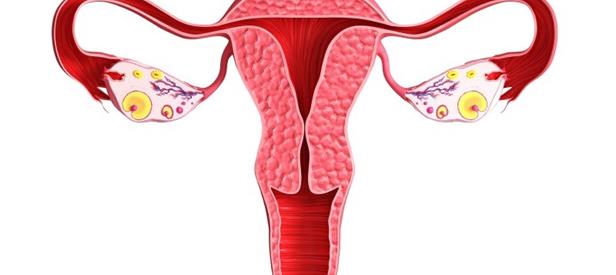Ectopic pregnancy is a rare condition affecting almost 2 in 100 pregnant women in which the fertilized egg, instead of attaching to the uterine lining, plants itself in the fallopian tube hence also known as tubal pregnancy. The implantation involves chemical, hormonal, and anatomical interplay and if disturbed, it results in an ectopic pregnancy.
An egg outside the uterus can not survive and may also rupture the fallopian tube hence an ectopic pregnancy requires immediate treatment or surgery to prevent complications. Such a pregnancy can happen in any female with or without the presence of risk factors.
It’s a medical emergency and requires immediate consultation with a gynecologist who will design an optimum therapeutic plan based on the progression of the pregnancy.
Causes of Ectopic Pregnancy
An ectopic pregnancy can occur in any woman and the causes are not known. However, some of the causes that are generally linked with ectopic pregnancy include;
- Birth defects including structural abnormalities in the fallopian tube
- Hormonal irregularities
- Scarring of the fallopian tube due to a previous medical condition
- Genetic abnormalities
Risks of developing an Ectopic Pregnancy
Tubal pregnancy can occur in any woman but certain risk factors may contribute significantly to the development of such pregnancy including;
- If your age is >30 years
- Sexually transmitted diseases (STDs) and certain infections can increase the risk of developing an ectopic pregnancy
- If you previously had such a pregnancy, chances are increased that you’ll again develop an ectopic pregnancy
- The chances of ectopic pregnancy are increased if you have gone through the fertility treatments like IVF can increase the risk
- Although chances are rare, if you get pregnant despite using an intrauterine device for contraception, you can develop an ectopic pregnancy
- Women who have undergone fertility treatments like IVF are more likely to develop an ectopic pregnancy
- Smoking can also increase the risks of developing tubal pregnancy.
There is no adequate prevention approach, but managing the controllable risk factors can reduce the chances of developing an ectopic pregnancy.
Consult the best gynecologist in Lahore immediately if you are pregnant and have any of the listed risk factors.
Symptoms associated with an Ectopic Pregnancy
The pregnancy can become ectopic in the first few months and you may not even know that you are pregnant. Some of the noticeable symptoms that may indicate an ectopic pregnancy include;
- Pain at one side of the abdomen
- Light vaginal bleeding
- Abdominal disturbances like nausea and vomiting
- Pain in shoulders and arms
- Fatigue and weakness
The emergency symptoms associated with ectopic pregnancy develop when the fallopian tube ruptures due to the egg being implanted and thus growing in the tube resulting in;
- Heavy vaginal bleeding
- Intense abdominal pain
- Fainting
- Severe shoulder pain
Seek immediate consultation with a gynecologist if you experience any of such symptoms as intense bleeding can even lead to death due to blood loss.
Diagnose the Ectopic Pregnancy
In cases where you might not know that you are pregnant, ectopic pregnancy remains undiagnosed until severe complications occur. However, in early pregnancy, the following tests can diagnose the life-threatening condition;
- A pelvic exam can detect that the fetus is implanted in the fallopian tube instead of the uterus
- An ultrasound examination of the uterus and ovaries
- Pregnancy hormone test, hCG test can also diagnose ectopic pregnancy as the placenta is not developed in the uterus so the placental hormone levels remain quite low as compared to the normal pregnancy
Treatment of an Ectopic pregnancy
The treatment of an ectopic pregnancy involves the use of the drug, methotrexate, by the gynecologist. A single shot of the medicine is injected which stops the growth and maturation of the egg. The body naturally dissolves the egg within 4-6 weeks and the pregnancy ends. The treatment with methotrexate is not similar to abortion during normal pregnancy as ectopic pregnancy is a medical emergency and its termination is important to prevent any life-threatening complications.
However, if the pregnancy has gone far, laparoscopic surgery is required to remove the ectopic pregnancy. In case, the fallopian tube is ruptured resulting in heavy internal bleeding, a laparotomy is done by the gynecologist to treat the ruptured tube or to remove the tube if required.
Aftercare for Ectopic pregnancy surgery
The surgical treatment for ectopic pregnancy requires specialized aftercare to prevent further complications and infection.
- Take rest as much as possible for at least one week following the surgery
- Avoid lifting heavy objects
- Drink plenty of liquids and eat suitable food to prevent constipation
- Avoid sexual intercourse for pelvic rest for at least a month
- Women may get into depression following the removal of an ectopic pregnancy so adequate mental support is required to manage the post-surgical symptoms
Can an Ectopic Pregnancy continue?
Ectopic pregnancy results when the fertilized egg is implanted in the placenta. Such a condition can lead to complications that may be fatal to the woman as well. It is not possible for an ectopic pregnancy to continue as the placenta only develops when the fertilized egg is attached to the uterus. The egg can not grow outside the uterus due to the lack of blood supply outside the uterus and hence the removal of the ectopic egg is required for the survival of the woman.
Can you get pregnant again after an Ectopic pregnancy?
You can get pregnant again after an ectopic pregnancy if the fallopian tube is not ruptured or removed. It is generally recommended to give rest to the body for at least 3 months following an ectopic pregnancy before planning for the next pregnancy. However, the chances of getting an ectopic pregnancy are increased if you have once faced the condition.

